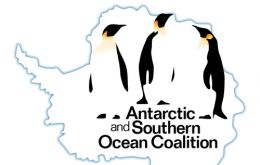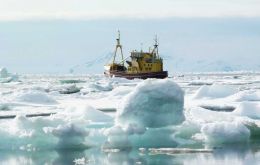MercoPress. South Atlantic News Agency
Tag: Sian Prior
-
Saturday, May 16th 2015 - 08:13 UTC
Polar Code does not adequately protect Antarctic environment from shipping, says ASOC

The Antarctic and Southern Ocean Coalition voiced its disappointment over the lack of any significant new provisions in Part II of the Polar Code that would adequately protect the Antarctic environment from shipping. The London-based UN International Maritime Organization (IMO) on Friday adopted Part II of the Polar Code concerning pollution prevention.
-
Monday, March 23rd 2015 - 22:51 UTC
New Antarctic affairs academic journal, sponsored by ASOC and Agenda Antarctica

The Journal of Antarctic Affairs is the new academic magazine of the Antarctic and Southern Ocean Coalition (ASOC) and Agenda Antarctica. The Journal aims to publish and disseminate the most prominent and influential research in relation to Antarctica by publishing articles, reviews and official documents in both English and Spanish twice a year.
-
Monday, November 24th 2014 - 07:31 UTC
IMO adopts Polar Code which comes into force in 2017; environmental groups unsatisfied

The International Maritime Organization (IMO) has adopted the Polar Code aimed at regulating shipping in Polar Regions. Several environmental groups have criticized the measures for not going far enough to protect the Arctic and Antarctic environments, arguing that while the new code is a positive step forward, it is insufficient to properly protect Polar environments from the anticipated increased levels of shipping activity.
